SNE and EDA regret the European Commission lack of will to propose specific rules for Young-Child Formula
SNE and EDA are deeply concerned that the European Commission’s report on Young-Child Formula fails to recognise that specific legislative provisions are needed for specialist formulae for young children aged 1-3 years, and urge the European Parliament and Council to demand action.
“The failure to regulate Young-Child Formula with specific rules at EU level may have unintended negative public health consequences, as these products will no longer be differentiated from other products for general consumers which are not necessarily designed to meet the specific nutritional needs of young children” stated Roger Clarke, President of SNE.
In light of the Commission’s Better Regulation strategy – which values extensive stakeholder consultation to ensure the development of EU rules when required – SNE and EDA deeply regret that the Commission has not recommended specific rules for Young-Child Formula, and that the Commission has thus failed to take into account the views of numerous stakeholders who requested this action including national governments, NGOs and industry.
SNE and EDA are very surprised by some clear and worrying discrepancies between the Report’s content and its conclusions:
- The Report acknowledges that Young-Child Formula represents one way to increase the intakes of certain nutrients, at risk of inadequacy for young children in the EU.
- The Report also recognises the reality that many families in the EU are not able to meet the nutritional needs of their young children, and that in some Member States consumption of Young-Child Formula is recommended by national authorities and health care professionals to address the difficulties in reaching adequate intakes for all nutrients through a diversified diet.
- Without a specific legal framework, they will be subject to adult nutrient reference values which are not appropriate for young children. In contrast, having specific rules would ensure a clear legal framework to safeguard high quality composition of products, and further incentivise research into advancing optimal young child nutrition.
- At the International level, Codex Alimentarius is currently carrying out a revision of the standard governing these products. Without consideration for these on-going revisions at International level, Europe risks having a legal framework for these products which offers less protection than the International standard, jeopardising the EU’s current role as a leader in consumer protection, and significantly impacting global trade.
Alexander Anton, Secretary General of EDA adds that “Especially in the midst of a dairy crisis in Europe as we have now, the Commission is depriving the Young-Child Formulae manufacturers from a high-level EU standard – to the detriment of the full dairy supply chain – and thereby limiting the ability of European industry to continue to lead on the global stage and compete with third country operators.”
SNE and EDA urge the European Parliament and Council to respond to the report and to call upon the European Commission to take into account almost unanimous stakeholders’ call for the development of an appropriate legal scenario which ensures that young children in the EU will not be deprived of a safe, scientifically proven way to improve essential nutrient intakes and achieve a balanced diet.
Notes to editors:
- On 20 July 2016, Directive 2009/39/EC, also known as “PARNUTs” Directive, will be repealed with the entry into force of Regulation (EU) 609/2013 on Foods for Specific Groups (FSG).
- According to Article 12 of this Regulation, the Commission shall have presented a report on the necessity, if any, of special provisions for milk-based drinks and similar products intended for young children (by 20 July 2015).
- In its opinion on the nutrient requirements and dietary intakes of infants and young children in October 2013, EFSA concluded that “Fortified formulae, including young-child formula, are one of several means to increase n-3 PUFA, iron, vitamin D and iodine intakes in infants and young children living in Europe with inadequate or at risk of inadequate status of these nutrients.”
- In its EFSA opinion (July 2014), EFSA specified that “Young-child formula is the term proposed by the Panel for formulae intended for young children”.
- Young-child formula, are designed to meet the needs of young children aged 1-3 years as part of a mixed diet based on family foods. Like follow-on formula, for infants aged 6-12 months, they should not be used as a breast milk substitute before six months.
- During the Working Group of the Advisory Group on the Food Chain and Animal Health and Plant Health on young-child formula held on 19 September 2014, “the majority of the stakeholders were in favour of option 3b, namely to include young-child formulae in the definition of follow-on formula”.
- During the Expert Group on food intended for infants and young children, food for special medical purposes and total diet replacement for weight control held on 10 October 2014, “the majority of the Member States who intervened supported Option 3b”.
- EDA, SNE and many other organisations have asked the Commission on multiple occasions to recognise the needs and unanimous position of the majority of stakeholders in its report and support option 3b.
- Specialised Nutrition Europe (SNE) is the trade association representing the interests of the specialised nutrition industry across the European Union. SNE members are the national associations of 16 Member States and their members are the companies producing tailor made dietary solutions for populations with very specific nutritional needs including infants and young children, patients under medical supervision, sportspeople, overweight and obese consumers, and those suffering from coeliac disease
- EDA, the European Dairy Association, is the voice of the European milk processing companies, both cooperatives and privately owned dairies. Our membership consists of national dairy associations across Europe.
